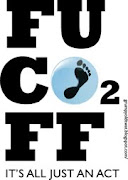Dutch GPS maker TomTom went into damage control today after it emerged that Dutch police have been using data collected from drivers who use the company's products to set speed traps.Now while this doesn't involve tracking specific users the thought occurs that that's also a possibility. My satnav remembers where it's been and how fast it went there, and that information can be downloaded to a computer. What's to stop the program on the computer that manages that information from being collected and sent off to the manufacturers who in turn flog the info to Vic police so they can see how hard I hit the pedal on the freeway? Not much if we don't take action to prevent it as far as I can see, which is a slight worry as my satnav's records have me once doing nearly 140km/h several hundred feet underground below Port Phillip Bay.** Obviously an error and in any case probably not something I'd get a ticket for, though with Vic police's constant hard on for speeding I wouldn't too sure, but I've known satnavs to get a little confused about speed in other places now and again. Not often, but if it thinks you're a block away from where you are and then works out your real position it's going to think you've just moved very quickly. Fifty metres in two seconds is 90 km/h and could get you a ticket on many urban and city centre roads round here, which would be a real pisser if it was just a figment of your satnav's moronic imagination.
Earlier, TomTom had reported weak first quarter earnings in which it cut 2011 sales forecasts and said it was seeking to compensate for a decline in demand for personal navigation devices by growing service revenues - including selling traffic data to governments.
National newspaper Algemeen Dagblad reported that police had obtained the information from the government and used it to set targeted speed traps, prompting angry reactions from TomTom users.
Advertisement: Story continues below
In a written apology, chief executive Harold Goddijn said the company sold the anonymous data believing it would be used to improve safety or relieve traffic bottlenecks.
Don't think it could happen? Look at that second paragraph again (my bold).
Earlier, TomTom had reported weak first quarter earnings in which it cut 2011 sales forecasts and said it was seeking to compensate for a decline in demand for personal navigation devices by growing service revenues - including selling traffic data to governments.Yeah, they're back-pedalling like crazy now but if they need the money it could get awfully tempting to build this kind of feature into future units if everybody's smartphones aren't already grassing them up by then. And the moral of the story is we'd all better start thinking about firewall rules to stop things doing an E.T. or avoiding plugging them into the computer at all.
* Not that I am saying that they are not arseholes, but I'm not sure this is particularly arseholish of them.
** I was actually holding it while standing still in a car port at the time, and while I'm not sure of the elevation I was certainly not in the bay, much less underneath it.


















